2011 commemorates the 10th anniversary of China's accession to the WTO. On December 11th, 2001, the WTO first opened its doors to China and accepted China as its 143rd member. Time flies and with its robust economy and accelerated social transformation, China has been playing a consistently increasing and important role on the international stage of the WTO over the past decade. China's accession to the WTO has proven to be a decision of historical significance. Membership in the WTO has benefited China in many ways. It advanced the process of opening up, promoted the establishment of a more developed legal system, accelerated economic development, improved the international environment and expanded the potential areas of development available to Chinese enterprises during their process of "going out." In the past decade, the Chinese government has kept its promise of complying with WTO rules and serving as the bridge between developing and developed countries. With the approval of the WTO, China has made constructive contributions to the global economy, and these contributions have objectively promoted the democratization and legalization of WTO governance.
Meanwhile, significant changes in the IP area have also taken place with the establishment of an IP legal system and the continuing strengthening of enforcement of IP protection. After joining the WTO, China revised legislation on a planned and comprehensive scale. Regulations and department rules related to international trade are more clearly planned. In addition, legislative bodies have amended many laws in the IP field, such as the Copyright Law, the Patent Law and the Trademark Law.
The first decade of China's accession into the WTO was only a stage in the process. Looking ahead, there are a series of practical problems waiting to be solved. These problems must be viewed against the general background of an increasingly complicated international economic situation and competition patterns. There is also a learning curve that must be considered. The next stage includes learning how to make full use of the WTO resources to allow China to play a more important role on the international stage; learning how to integrate China's existing national IP protection system so that it is more consistent with international characteristics; and teaching Chinese enterprises how to independently make better use of WTO rules concerning IP to accelerate innovation. The list goes on.
In order to discuss these concerns a comprehensive series of interviews and reporting activities entitled "Retrospect and Prospect of China's IP Work after a Decade's Accession into the WTO" was held jointly by China Daily, China IP Magazine and Orient Master Magazine, with the support of the Legal Research Subcommittee of the China Law Society, Copyright Society of China, China Software Industry Association and other contributors. Following is a summary of some highlights from these interviews and reports.
Xu Kuangdi
Vice Chairman of the Tenth CPPCC National Committee, Honorary President of China World Trade Organization Studies
China's WTO accession accelerated the process of opening up and actively promoted the reform of the system, which jointly made great contributions to China's economic development. Meanwhile, it also raised questions which call for thorough reflections. For example, how can China protect its interests in the process of economic globalization while simultaneously fighting against trade protectionism? How will China's decision of stimulating domestic demands influence economic globalization? What kind of attitude shall we hold?
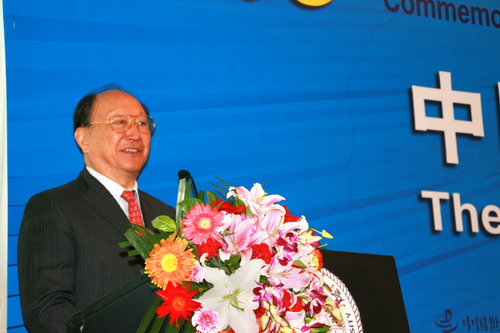 |
| Xu Kuangdi |
A decade is only a starting point in the process; at this point, China still has a long way to go on the road of deepening reform and further opening up, especially since the status and the role of China in the process of economic globalization have changed. There are many issues worthy of our in-depth study. For example, is economic globalization a double-edged sword for China? There are different views between those in academic and theoretical fields and those in practical working departments. How should we protect our interest and fight against trade protectionism in the process of economic globalization? With our increasing status in international trade, China has now become the target of criticism in the global trade. How should we respond to the attacks? China has been involved in more anti-dumping investigations in the last 12 years than any other country. According to the WTO statistics, China's exports in 2010 accounted for 10% of the world's total exports, but trade frictions against China accounted for 35% of the total number complaints. The international pressure is obviously great. However, since China has come to this position, dealing with trade frictions and disputes are inevitable.
Shen Jueren
The First Chief Negotiator of the Chinese government's restore GATT parties negotiations and a Lifelong Honorary Advisor to the China Society for World Trade Organization Studies
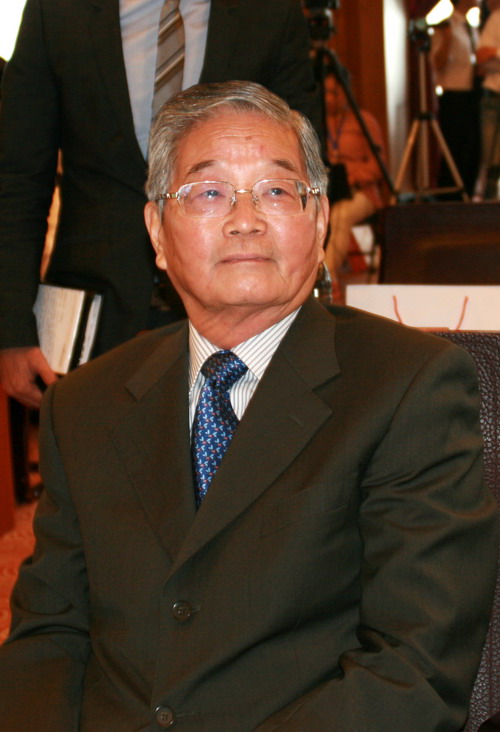 |
| Shen Jueren |
The negotiations of joining the WTO are absolutely the responsibility of the government. However, after joining the WTO there is a lot of work to be done by the enterprises. Chinese enterprises have to learn the WTO rules well because a large percentage of trade friction between domestic and foreign enterprises is due to deficiencies in understanding the WTO rules. That's to say, the government and the enterprises each have their own responsibilities respectively. However, since the government is only responsible for the work that goes into joining the WTO, these agencies should then share this knowledge with national enterprises so that the benefits of joining the WTO can be put to use. The government can get us there and gain the expertise, but it is up the businesses doing business under WTO rules to take advantage of the opportunity created by the WTO membership.
Wang Chao
Vice Minister of Ministry of Commerce
The decade after China joined the WTO is also a decade in which China has made remarkable achievements in economic and social development, and a decade in which China made significant contributions to the world economy. After joining the WTO, China's imports and exports increased China has now become the world's largest exporter and the second largest importer. China has carried out a large-scale clearance and amendments of laws and regulations. The Anti-Monopoly Law has also been developed and implemented. China has been playing an active role in improving the legal protection of the IP system, strengthening the enforcement of IP laws, and powerfully prompting technological innovation.
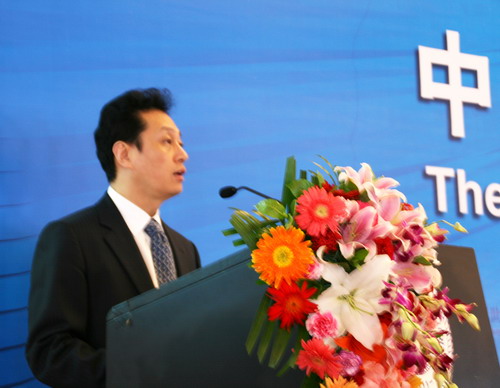 |
| Wang Chao |
In recent years, while preserving the old advantages in labor-intensive production and exportation, new competitive advantages coming from the use of high-tech industries and high value-added products. Products that have their own innovative technologies, independent intellectual property rights and brands, and are characterized with the use of high-tech innovation, high value added production and also products that require a high degree of industrialization began to emerge.
Gu Yongjiang
The third Chief Negotiator of the Chinese Government's Restore GATT Parties Negotiations, Lifelong Honorary Advisor of China Society for World Trade Organization Studies
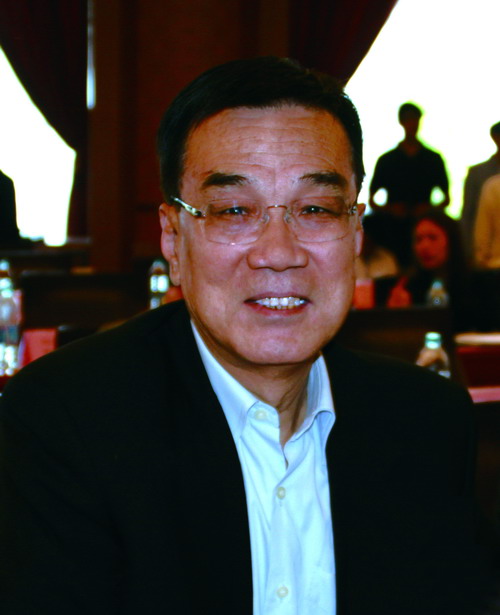 |
| Gu Yongjiang |
In the decade since China joined the WTO, there have been a number of media reports criticizing that bias, even violations often occur in the decision making process on foreign trade activities because some of the local officials failed to comprehend the WTO rules thoroughly. At present, many entrepreneurs understand and apply the WTO rules better than some of the government officials responsible for making decisions related to WTO related matters must master the WTO rules thoroughly and comprehensively.
It is like playing chess. You can learn how to play chess by reading the rules. However, when you are highly skilled, you do not need a rule book anymore. Likewise, how can we deal with something if we do not have a thorough understanding of what we are dealing with and the rules of the game? We need to thoroughly comprehend the WTO rules if we wish to uphold and defend our legal rights with them. So I hope that government officials could learn the rules thoroughly.
Sun Zhenyu
Chairman of China Society for World Trade Organization Studies, served as the Ambassador and Permanent Representative of China in the WTO from 2002 to 2010
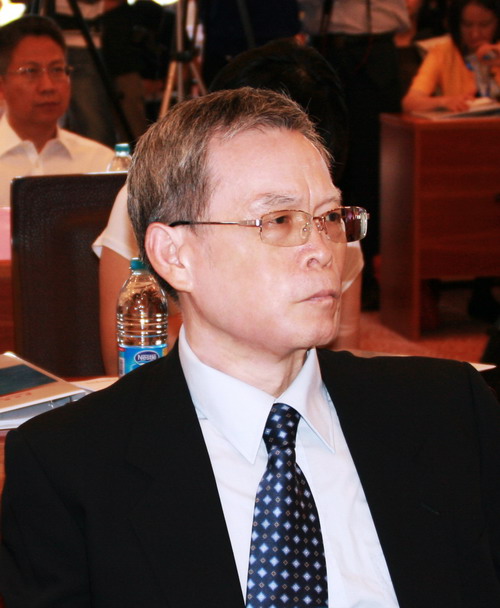 |
| Sun Zhenyu |
The decade of China's accession to the WTO is indeed a decade of continuous learning and adapting to the WTO rules. We have paid more attention to how to respond, and how to protect some of China's important industries from being affected as a result of joining the WTO. At that time we were especially concerned with fields such as agriculture, finance, and the automobile industry. From my perspective, it is mainly a dice game on the international stage, and we should aim to reach win-win situations. Taking the WTO as an example, we have to admit that there are rules that are not so reasonable. However, the general and important rules are beneficial and suit our national conditions, including the principle of shaking off poverty, the principle of non-discrimination, the principle of continuously opening the market and canceling the trade barriers. All these are of positive significance to accelerating the development of the global economy and improving the legal construction of the member countries.
Xu Bingjin
The Deputy Head of the Chinese Government's Restore GATT Parties Negotiations, Former Director of the State Electrical and Mechanical Offices
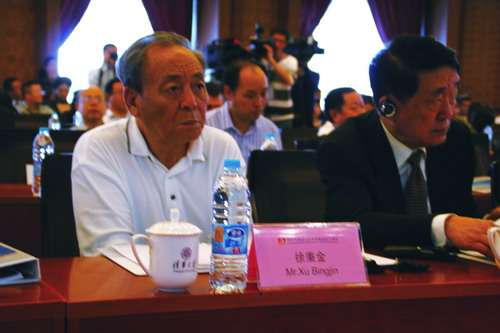 |
| Xu Bingjin |
At present, trade protectionism is no better than what it used to be before the WTO talks and high-tech products are the focus of protection. It is a problem on which we have been working for years; however, the condition remains unchanged: what we want to buy is not available to us. The WTO has approved the works China has done. However, they also pointed out two aspects to be improved in China, one is IP protection, the other is system innovation. This reminds me of a statement made by the U.S. Finance Minister, saying that China's system innovation affects America's interests. I consider it as an unwarranted accusation. How could China develop without a system innovation? America has highly developed advanced technologies, without which it could never become the world's most powerful country. From now on, we should study and apply the WTO rules in practice to work out how China could move forward under the current situation.
Zhang Zhigang
Vice Director of the Economic Committee of the CPPCC, President of the China General Chamber of Commerce
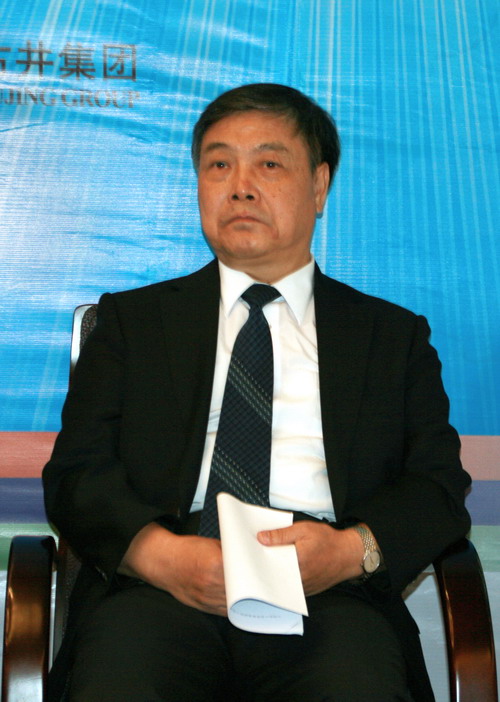 |
| Zhang Zhigang |
If the negotiation of joining the WTO is like treating guests to dinner, the negotiators are those who make the invitation while we are the cooks in the kitchen. The negotiations of joining the WTO were so hard that negotiators of four terms devoted every effort in the talks. But the cooks were working hard as well. Chinese people cherish the philosophy of "When I walk together with two others, they can surely serve as my teachers," whereas some countries think the other way around, which is simply unfair. China abides by the WTO rules in the first place, and through talks solves the problems we observe as unfair. At this moment, the world is confronted with great difficulties and so is the WTO. In this circumstance, China should seek to become more confident and strive to become a rule-maker in the WTO and a firm contributor to the development of world organizations.
Liu Guangxi
Vice President of WTO Law Research Society of China Law Society
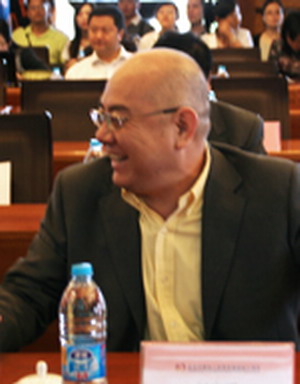 |
| Liu Guangxi |
The course of joining the WTO can be divided into three stages; the first is to "pass the examination;" the second is to learn how the old members are dealing things; and finally goes to the third stage of gaining advantages and avoiding the pitfalls. Ten years have passed, what role is China playing now in the global governance? I personally hold that China is not yet the hero, but plays an ordinary yet important role and a member that needs to make progress gradually on the stage. China used to play an insignificant role, and it will require the hard work of the next generation before it can become the hero. China still needs to be humble and observe calmly.
Li Shunde
Researcher in the Institute of Law, Chinese Academy of Social Sciences (CASS), Vice President of WTO Law Research Society of China Law Society
 |
| Li Shunde |
After China's accession to the WTO, IP has influenced the economic, cultural and technological development greatly. To a certain extent, IP issues give Chinese people an important lesson, which offers a brand new perspective of evaluating things. Chinese enterprises could only get 10% of the profit according to the traditional industrial input, and meanwhile being confined by others. In contrast, foreign enterprises that begin with a strong input of intellectual property rights and generate 100% to 300% profit. The production of lighters in Wenzhou is the best example. At present, IP has become an important tool in international trade which is used by many countries as non-tariff barrier to keep China's goods from going out. We need to know how to use IP to develop our economy.
Jiang Zhipei
Former Chief Justice of the IP Tribunal of the Supreme People's Court, Standing Director of WTO Law Research Society of China Law Society
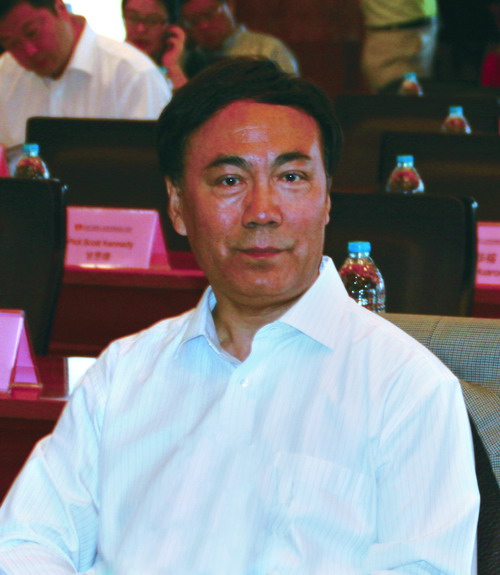 |
| Jiang Zhipei |
China's accession to the WTO had great impact on the country's legislation and motivated China's legal development very much. The highest judicial organs developed a series of judicial interpretations to enforce the laws, involving patents, trademarks, copyrights, processes, injunctions and evidence. In the future, China should continue to develop its advantages and avoid its short-comings under the WTO framework. It should establish a more transparent, normative and independent protection mechanism upon the judicial protection of intellectual property rights. One of my wishes is that the government could invest in a state judiciary and to establish a court of appeals for IP disputes in Beijing. Since a trial court is completely different from an appellate court, the former could offer the parties room to maneuver. The Chinese judicial system handles more IP cases than any other country in the world. Dealing with such a critical problem, China needs to innovate at home and protect its legal rights abroad. Therefore there should be special investments for building such a judicial organ.
Xue Rongjiu
Professor and doctorial tutor of University of International Business and Economics (UIBE), Vice Chairman of China Society for World Trade Organization Studies
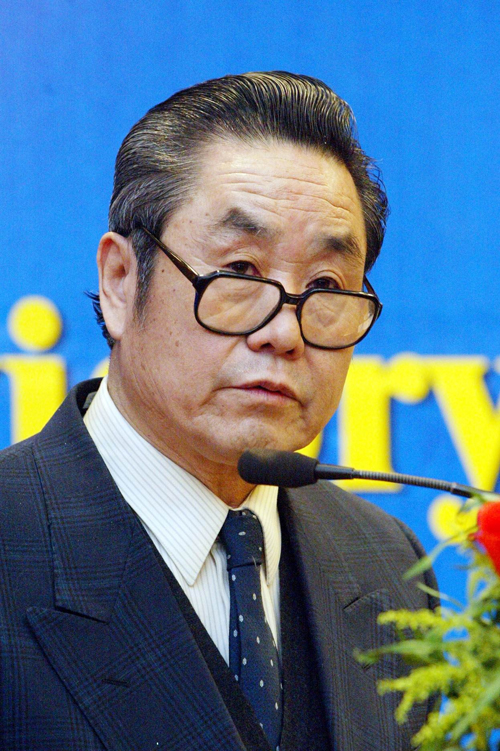 |
| Xue Rongjiu |
The transparency principle is one of the most important principles of the WTO, which requires improvement of transparency and openness in trade management. This mechanism requires China's trade policies to be transparent and comply with the inter national standards. During the decade of accession in the WTO, China's greatest achievement is the strengthening of the awareness of the rules. However, China's biggest short-coming still lies in the lack of adequate awareness of the rules. Today we usually say that the game is over since China has joined the WTO, but the rules of the game have not yet become an organic common understanding in China's modern society. Let alone the fact that we must begin changing the way we do business from passively following the rules to actively using the rules to protect our interests. The WTO rules promote openness and fair play. Has China lived up to these standards? Intellectual property rights are still being abused. What has China done with IP protection? The reason why negative impacts appeared after joining the WTO is because we do not yet thoroughly understood the WTO rules. As a result, we cannot fully implement them and accordingly. We should consider that problem rather than looking at other reasons.
(Translated by Monica Zhang)











